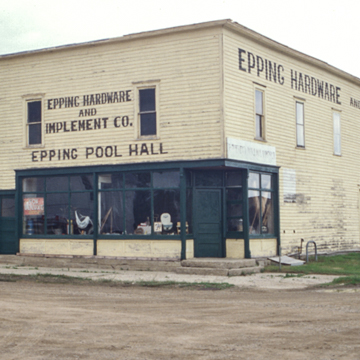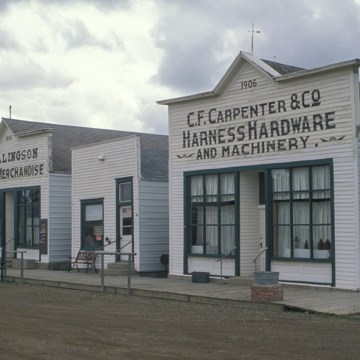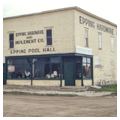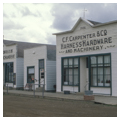Epping was established speculatively by the Great Northern Railway. After the arrival of a shipment of wood construction materials to the railhead here in 1906, the town experienced a remarkable growth in its number of buildings, including hotels, general merchandise stores, and lodge halls. With about forty businesses at its peak, Epping proclaimed itself the “Biggest Little Town on the Great Northern.” Many of the historic buildings are frozen in time as an outdoor museum. They are well-preserved examples of boomtown commercial fronts, recalling the exuberant entrepreneurship that accompanied the establishment of fledgling communities all along the Great Northern line. The former Epping Feed Store (hardware and implement) was later converted to a hotel and, after that, to a pool hall and confectionary store that was an important center of this small community for many years, and it continues to serve as a meeting place. Despite extreme oil development pressures to accommodate an intensive man camp at the edges of this historic village, local pride and community determination maintain and interpret the historic character of the retail building and their historic relationship.
You are here
Epping Pool Hall, Epping Historic District
If SAH Archipedia has been useful to you, please consider supporting it.
SAH Archipedia tells the story of the United States through its buildings, landscapes, and cities. This freely available resource empowers the public with authoritative knowledge that deepens their understanding and appreciation of the built environment. But the Society of Architectural Historians, which created SAH Archipedia with University of Virginia Press, needs your support to maintain the high-caliber research, writing, photography, cartography, editing, design, and programming that make SAH Archipedia a trusted online resource available to all who value the history of place, heritage tourism, and learning.





